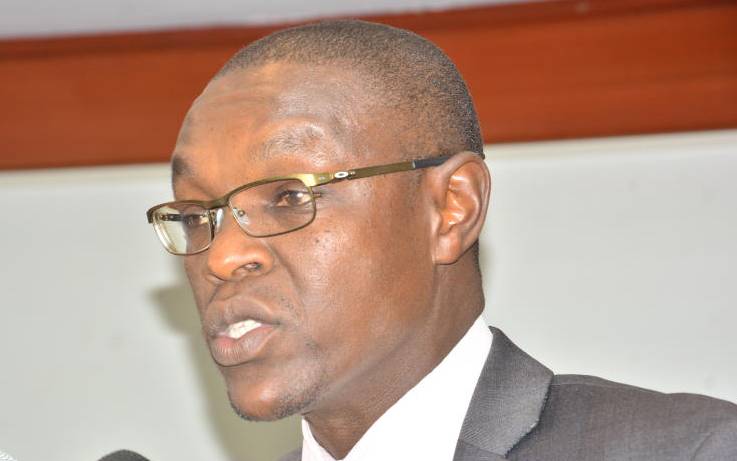
Kenya Bankers Association Research and Policy Director, Jared Osoro, during the release of third report on impact of interest capping law, on Friday, May 11 2018.The report shows that while the law was well-intentioned, it has failed to achieve its key objective of increasing credit uptake by households and micro and small enterprises. [David Njaaga/Standard]
Over the past five years, Kenyan businesses have found it increasingly hard to repay their debt with the rate of non-performing loans (NPLs) climbing to a 12-year high.